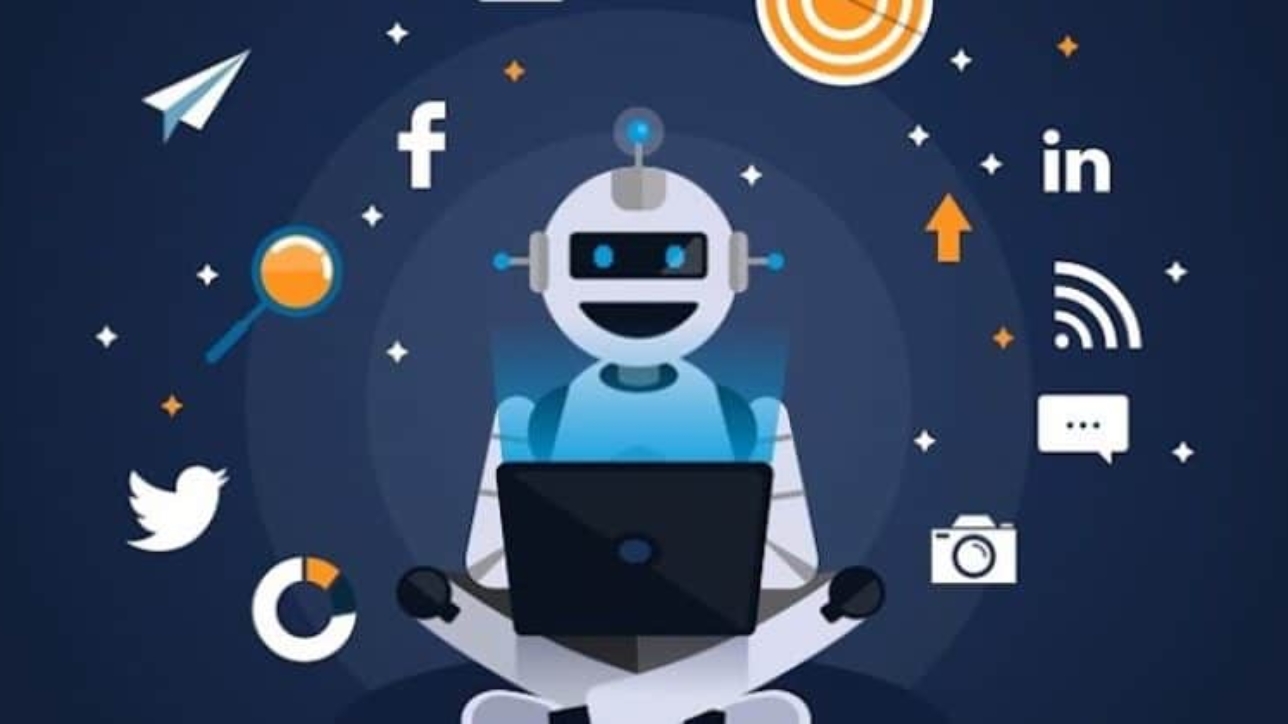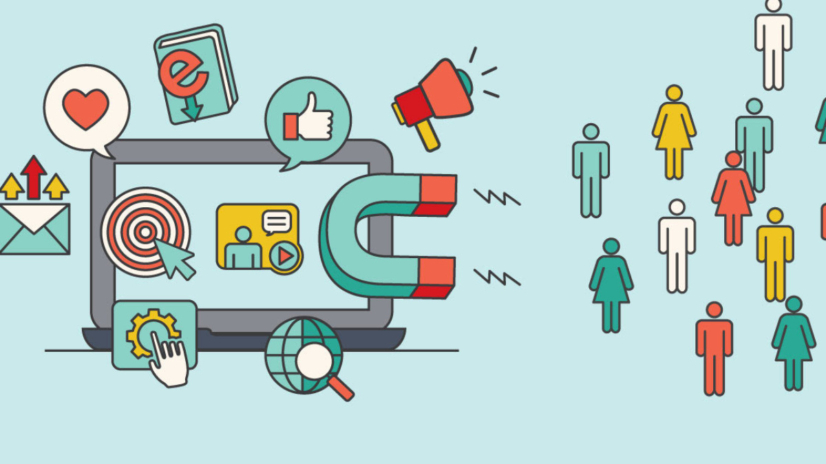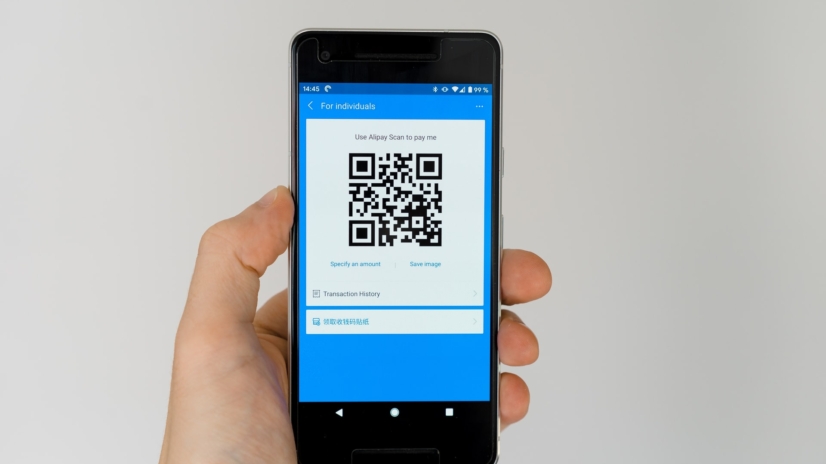Many companies – and the marketing teams that support them – are rapidly adopting intelligent technology solutions to encourage operational efficiency while improving the customer experience. These intelligent solutions often come in the form of Artificial Intelligence (AI) marketing platforms. Through these platforms, marketers can gain a more nuanced, comprehensive understanding of their target audiences. The artificial intelligence-driven insights gathered through this optimization process can then be used to drive conversions, while also easing the workload for marketing teams.
What is AI (Artificial Intelligence) Marketing?
AI marketing uses artificial intelligence technologies to make automated decisions based on data collection, data analysis, and additional observations of audience or economic trends that may impact marketing efforts. AI is often used in digital marketing efforts where speed is essential. AI marketing tools use data and customer profiles to learn how to best communicate with customers, then serve them tailored messages at the right time without intervention from marketing team members, ensuring maximum efficiency. For many of today’s digital marketers, AI is used to augment marketing teams or to perform more tactical tasks that require less human nuance.
AI Marketing Use Cases Include:
- Data Analysis: Collecting and sifting through large amounts of marketing data from various campaigns and programs that would otherwise have to be sorted manually.
- Natural Language Processing (NLP): Creating human-like language for content creation, customer service bots, experience personalization and more.
- Media Buying: Predicting the most effective ad and media placements for a business in order to reach their target audience and maximize marketing strategy ROI.
- Automated Decision-Making: AI marketing tools help a business to decide which marketing or business growth strategy they should use based on past data or outside data inputs.
- Content Generation: Writing both short and long pieces of content for a marketing strategy, such as video captions, email subject lines, web copy, blogs and more.
- Real-time Personalization: Changing a customer’s experience with a marketing asset such as a web page, social post or email to fit the customer’s past preferences to encourage a certain action, such as clicking a link, signing up for something or buying a product.
Types of AI Marketing Solutions
It’s clear that artificial intelligence holds a vital role in helping marketers connect with consumers. The following components of AI marketing make up today’s leading solutions that are helping to bridge the gap between the vast amounts of customer data being collected and the actionable next steps digital marketers can take in their future campaigns:
Machine Learning
Machine learning is driven by artificial intelligence, which involves computer algorithms that can analyze information and improve digital marketing campaigns automatically through experience. Devices that leverage machine learning analyze new information in the context of relevant historical data, which can inform digital marketing campaigns based on what has or hasn’t worked in the past.
Big Data and Analytics
The emergence of digital media has brought on an influx of “big data”, which has provided opportunities for digital marketers to understand their efforts and accurately attribute value across channels. This has also led to an over-saturation of data, as many digital marketers struggle to determine which data sets are worth collecting. AI marketing can help parse through all that data at lightspeed, filtering it down to its essentials and not only analyzing it but also recommending the best elements of future digital marketing campaigns.
AI Marketing Platforms & Tools
Effective AI-powered marketing solutions provide digital marketers with a central platform for managing the huge amounts of data being collected. These AI marketing platforms have the ability to glean insightful marketing intelligence from your target audience so you can make data-driven decisions about how to best reach them. For example, frameworks such as Bayesian Learning and Forgetting can help marketers gain a clearer understanding of how receptive a customer is to a specific digital marketing effort.
Challenges for AI Marketing
Modern marketing relies on an in-depth understanding of customer needs and preferences, and the ability to act on that knowledge quickly and effectively. The ability to make real-time, data-driven decisions has brought AI marketing solutions to the forefront for marketing stakeholders. However, marketing teams must be discerning when deciding how to best integrate AI into their campaigns and operations. The development and use of AI marketing tools is still in its early stages. Therefore, there are a few challenges to be aware of when implementing AI into your digital marketing strategy.
Training Time and Data Quality
AI marketing tools do not automatically know which actions to take to achieve marketing goals. They require time and training, just as humans do, to learn organizational goals, customer preferences, historical trends, understand overall context, and establish expertise. This learning process also requires data quality assurances. If your AI marketing tools are not trained with high-quality data that is accurate, timely, and representative, you’ll end up with inaccurate data decisions that don’t truly reflect consumer desires, making your shiny new AI marketing tool nothing more than a toy.
Privacy
Consumers and regulating bodies alike are cracking down on how organizations use their data. Digital marketing teams need to ensure they are using consumer data ethically and in compliance with standards such as GDPR while implementing an AI marketing strategy, or risk heavy penalties and reputation damage. Unless your AI marketing tools are specifically programmed to observe specific legal guidelines, they may overstep in what is considered acceptable in terms of using consumer data for marketing personalization.
Getting Buy-In
It can be difficult for digital marketing teams to demonstrate the value of AI marketing investments to business stakeholders. While KPIs such as ROI and efficiency are easily quantifiable, showing how AI marketing has improved customer experience or brand reputation can be less obvious. With this in mind, digital marketing teams need to ensure they have the right measurement tools to attribute these qualitative gains to AI investments.
Deployment Best Practices
Because AI marketing is a newer tool in the digital marketer’s toolbox, definitive best practices haven’t yet been established to guide marketing teams’ initial deployments. Every digital marketing team should think about the long-term effects of implementing an AI marketing strategy, not just the short-term benefits they could reap.
Adapting to a Changing Marketing Landscape
With the emergence of AI marketing comes a disruption in the day-to-day marketing operations. Marketers must evaluate which jobs will be replaced and which jobs will be created. One study suggested that nearly 6 out of every 10 current marketing specialist and analyst jobs will be replaced with marketing technology.
How to Use AI in Marketing
It’s important to begin with a thorough plan when leveraging AI in marketing campaigns and operations. This will ensure marketing teams minimize costly challenges and achieve the most value from their AI investment in the least amount of time.
Before implementing any AI marketing tools, there are a few key factors for digital marketers to consider:
Establish Goals
As with any marketing program, it is important that clear goals and marketing analytics are established for your AI marketing program from the outset. Start by identifying areas within campaigns or operations that could stand to be improved, such as segmentation. Then establish clear KPIs that will help illuminate how successful the AI-augmented marketing campaign has been – this is especially important for qualitative goals such as “improve customer experience.”
Data Privacy Standards
At the outset of your new marketing program, be sure that your AI marketing platform will not cross the line of acceptable data use in the name of data personalization. Be sure privacy standards are established and programmed into your AI marketing platforms as needed to maintain compliance and consumer trust.
Data Quantity and Sources
In order to get started with AI marketing, digital marketers typically need to have a vast amount of data at their disposal. This data will train the AI marketing tool in customer preferences, external trends, and other factors that will impact the success of AI-enabled marketing campaigns. This data can be taken from the organization’s own CRM, previous marketing campaigns, and website data. Additionally, marketers may supplement this with second and third-party data, which can include location data, weather data, and other external factors that may contribute to a purchasing decision.
Acquire Data Science Talent
Many marketing teams lack employees with the necessary data science and AI expertise, making it difficult to work with vast amounts of data and deliver insights. To get AI marketing programs off the ground, organizations should work with third-party organizations that can assist in the collection and analysis of data to train their tools for optimal performance and facilitate ongoing maintenance.
Maintain Data Quality
As machine learning and AI marketing programs consume more data, they will learn how to make accurate, effective decisions. However, if the data being fed to your AI marketing program is not standardized and error-free, the insights will not be useful and can actually cause decisions that hurt your bottom line rather than help it. Prior to implementing any AI marketing programs, marketing teams must coordinate with data management teams and other lines of business to establish processes for data cleansing and data maintenance. When doing so, consider the seven essential data dimensions:• Timeliness
• Completeness
• Consistency
• Relevance
• Transparency
• Accuracy
• Representativeness
Create an Integrated AI Marketing Strategy
Most digital marketers find their AI marketing tools are especially effective when integrated with their existing marketing strategy, rather than being used as a stand-alone tactic. AI marketing tools create opportunities to optimize steps in a marketing strategy that might currently be labor-intensive, such as data analysis, or have a risk of inaccuracy, such as attribution.
By incorporating AI to fill in these “blind spots”, digital marketers can not only leverage these powerful forward-thinking methods to take their marketing to the next level but also build on the foundation of effective digital marketing methods they’ve used in the past.
Selecting an AI Platform
Selecting the right platform or platforms is a crucial step in getting an AI marketing program off the ground. Marketers should be discerning in identifying the gaps that the platform is trying to fill and select solutions based on capabilities. This will revolve around the goal marketers are trying to achieve – for example, speed, and productivity goals will require different functionality than tools used to improve overall customer satisfaction with AI.
One thing to keep in mind when selecting a tool is the level of visibility you will need regarding why an AI marketing platform made a certain decision. Depending on the algorithm in use, digital marketing teams may get a clear report on why a certain decision was made and which data influenced the decision, while algorithms working on a more advanced level with deep learning may not be able to give as definitive reasoning.
Benefits of Leveraging AI (Artificial Intelligence) in Marketing
There are a myriad of use cases for incorporating AI marketing into your digital marketing programs, and each of these use cases yields different benefits. For example, AI marketing can be an asset in areas such as risk reduction, increased speed, greater customer satisfaction, increased revenue, and more. Benefits may be quantifiable (number of sales) or not quantifiable (user satisfaction). There are a few overarching benefits that can be applied across AI marketing use cases:
Increased Campaign ROI
If leveraged correctly, marketers can use AI marketing to transform their entire marketing program by extracting the most valuable insights from their datasets and acting on them in real-time. AI platforms can make fast decisions on how to best allocate funds across media channels or analyze the most effective ad placements to more consistently engage customers, getting the most value out of campaigns.
Better Customer Relationships & Real-Time Personalization
AI marketing can help you deliver personalized messages to customers at appropriate points in the consumer lifecycle. It can also help digital marketers identify at-risk customers and target them with information that will get them to re-engage with the brand.
Enhanced Marketing Measurement
Many organizations have trouble keeping pace with all of the data digital marketing campaigns produce, making it difficult to tie success back to specific campaigns. Dashboards that leverage AI marketing allow for a more comprehensive view into what is working so that it can be replicated across channels and budgets allocated accordingly.
Make Decisions Faster
AI marketing is able to conduct tactical data analysis faster than its human counterparts and use machine learning to come to fast conclusions based on campaign and customer context. This gives team members time to focus on strategic initiatives that can then inform AI-enabled campaigns. With AI marketing, digital marketers no longer have to wait until the end of a campaign to make decisions, but can use real-time analytics to make better media choices.
7 Examples of AI (Artificial Intelligence) in Marketing
AI marketing is being used in digital marketing initiatives in a multitude of use cases, across a broad array of industries. Industries leveraging AI marketing and its optimization capabilities include financial services, government, entertainment, healthcare, retail, and more. Each AI marketing use case offers different results, from customer retention improvements to campaign performance, to enhanced customer experience, or greater efficiency in marketing operations.
There are numerous ways businesses can take advantage of AI marketing and machine learning to create a more comprehensive marketing plan. Consider the following:
1. Bidding on Programmatic Media Buys
A problem that marketing teams often encounter is deciding where to place advertisements and messaging. Marketing teams can create informed plans based on user preferences, but these teams are often not flexible or agile enough to alter the plan in real-time based on the latest consumer information. AI marketing is being used by digital marketers to mitigate this challenge through programmatic advertising.
Programmatic platforms leverage machine learning to bid on ad space relevant to target audiences in real-time. The bid is informed by data such as interests, location, purchase history, buyer intent, and more. This enables digital marketing teams to leverage AI marketing to target the right channels at the correct time, for a competitive price. Programmatic buying exemplifies how machine learning can increase marketing flexibility to meet customers as their needs and interests evolve.
2. Select the Right Message
Across channels, different consumers respond to different messages – some may resonate with an emotional appeal, some humor, others logic. Machine learning and AI marketing can track which messaging consumers have responded to and create a more complete user profile. From there, marketing teams can serve more customized messages to users based on their preferences.
For example, Netflix uses machine learning to understand the genres a certain user is interested in. It then customizes the artwork that the user sees to match up with these interests. On the Netflix Tech Blog, the author explains how Netflix leverages AI tools and algorithms to determine which artwork will most entice a viewer to watch a certain title, saying:
“Let us consider trying to personalize the image we use to depict the movie Good Will Hunting. Here we might personalize this decision based on how much a member prefers different genres and themes. Someone who has watched many romantic movies may be interested in Good Will Hunting if we show the artwork containing Matt Damon and Minnie Driver, whereas, a member who has watched many comedies might be drawn to the movie if we use the artwork containing Robin Williams, a well-known comedian.”
When AI marketing tools and machine learning are used, these platforms can gather valuable data on customers that allow marketing teams to increase conversion rates and improve the customer’s experience. Marketing teams can then analyze all of this data to create a more nuanced view of the customer, even considering additional factors such as if a user would have watched a title regardless of the image, and how that plays into future messaging.
3. Granular Personalization
A highly granular level of personalization is expected by today’s consumers. Marketing messages should be informed by a user’s interests, purchase history, location, past brand interactions, and a host of other data points. AI marketing helps marketing teams go beyond standard demographic data to learn about consumer preferences on a granular, individual level. This helps brands create curated experiences based on a customer’s unique tastes.
For example, Spotify uses AI marketing tools to create customized playlists based on what a customer has listened to in the past, current hits across genres, and which music is being talked about. It uses these datasets to create customized playlists for users and to create genre playlists based on artists that appear in conversation, in articles, etc. This data has helped Spotify to become a top streaming service and emphasize customer experience through personalization.
Another trend based on AI-enabled personalization is atomic content. Here, AI learns customer preferences and pulls pieces from a library of content to create a customized email or offer for a client featuring relevant images, videos, or articles.
4. Chatbots and Conversational Experiences
With the development of natural language processing through AI, chatbots are now being used to augment customer service agents. Customers with more basic queries can refer to chatbots which will give immediate, accurate answers. They will be able to leverage past questions and historical data to deliver personalized results. This gives time back to customer service agents to work on complicated requests that need more human nuance.
5. Predictive Marketing Analytics
With so much data flowing into their organization every day, marketing teams are having a hard time actually deriving insights from it. AI marketing tools allow marketing teams to make the most of this data using predictive analytics, which leverages a combination of machine learning, algorithms, models, and datasets to predict future behavior. This can help digital marketing teams understand the types of products a consumer will be looking for and when – allowing them to position campaigns more accurately.
For example, Amazon uses predictive analytics to suggest products to consumers based on past purchases and behaviors, increasing conversions and customer satisfaction. AI marketing tools can also be used to help marketing teams more accurately track attribution, allowing teams to see which campaigns contributed most to ROI.
6. Marketing Operations
Another key use case for AI marketing tools is to increase efficiency across various processes. AI can help to automate tactical processes such as the sorting of marketing data, answering common customer questions, and conducting security authorizations. This allows marketing teams more time to work on strategic and analytical work.
7. Dynamic Pricing
AI marketing can help make brands more competitive by enabling dynamic pricing. AI platforms can suggest optimal prices for products in real-time by evaluating huge quantities of historical and competitive data. This strategy has been especially effective in retail. It allows brands to adjust prices to reflect demand for certain products, boost sales, and edge out the competition.
AI Marketing Predictions and Trends
While AI marketing tools are still largely new additions to the marketing space, it promises to only grow in popularity. There are a few AI trends marketers will see over the next few years and should begin to adapt to:
AI is Growing:
- Gartner has predicted that by 2022, AI will replace about 33% of data analysts in marketing.
- Tech giants realize the benefits and potential for AI. In 2016, they were already spending on average between $20-$30 billion. 90 percent of this budget was focused on deployment and research.
- Additionally, in 2020 Gartner predicted that more than 40% of data science tasks will be automated
Teams Will Scale Through AI
Marketing teams will be put under increased pressure to demonstrate marketing value and ROI to executive stakeholders. Teams will be able to leverage AI marketing solutions to drive these targets and better allocate funds towards successful campaigns, as well as providing the marketing metrics that demonstrate the value of campaigns.
Marketing Leaders Who Don’t Leverage AI Will Be Replaced By Those Who Do
According to Gartner, those responsible for marketing insights will no longer be as competitive in this changing marketing landscape. The majority of those surveyed by Gartner employ AI solutions in their marketing strategy or are planning to. Only 13 percent do not see a use for it in the next three years.
Breaking Down AI Marketing
No matter how large or small your marketing team is, AI marketing tools and machine learning programs can help increase productivity, ROI and efficiency, while also processing those mountains of data your team might not have time to wrestle with otherwise.
Even if your first foray into AI marketing is something as small as using a machine learning program to help write your email subject lines for your next digital marketing campaign, every little step towards an AI-powered future can help keep your brand ahead of the competition and crushing revenue goals all year long.
Market Evolution









